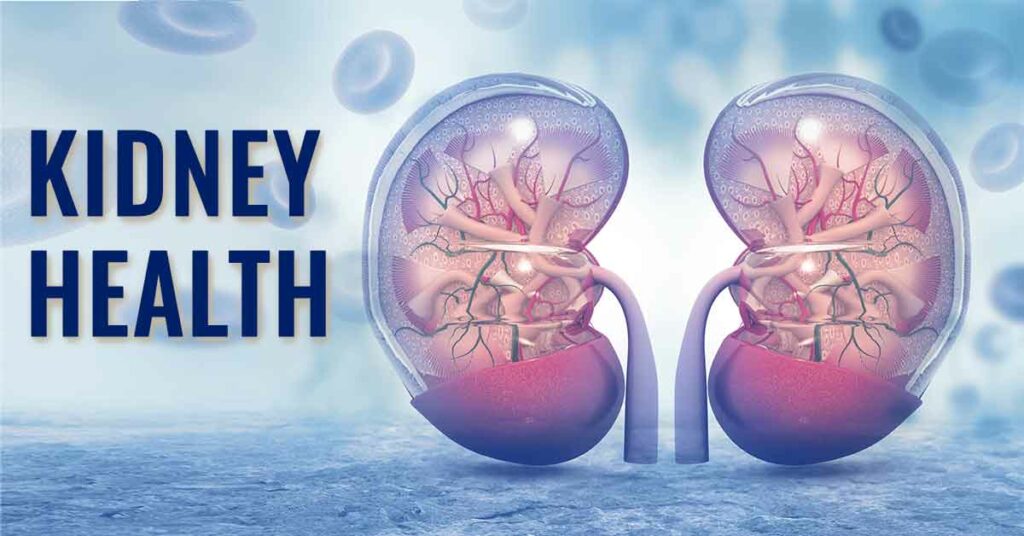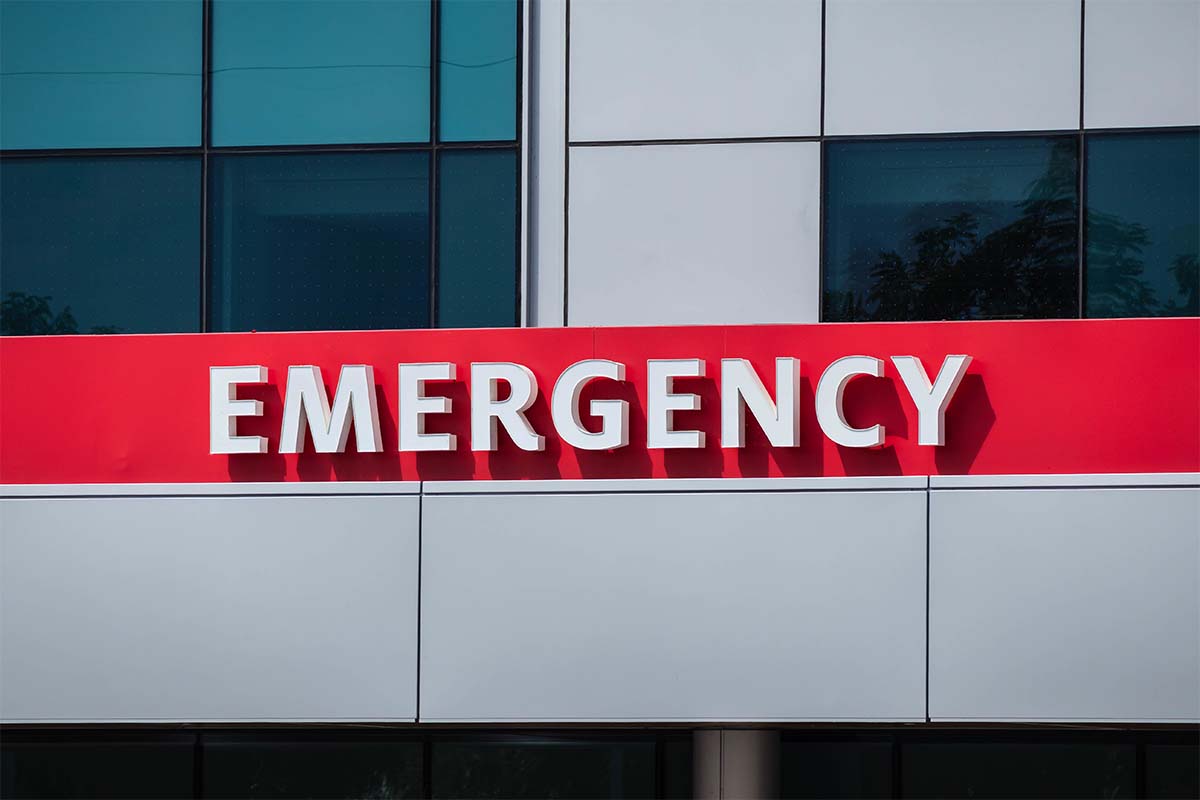
The kidneys are vital organs of our bodies, which means we can’t live without them if they don’t function. They remove waste, control the body’s fluid, and remove the excess waste and water through urination. This process is necessary to maintain a stable balance of body chemicals. And when its function is abnormal for any reason, it can lead to serious, life-threatening complications.
1 in 3 Americans is at a higher risk of developing kidney disease – an alarming statistic reported by the Centers for Disease Control & Prevention (CDC 2019). Kidney diseases are silent killers, which mainly affect your quality of life. The number of American adults who have chronic kidney disease (CKD) is now estimated to be 37 million – that’s one out of every seven or 15 percent of the adult population – according to the latest data from the Centers for Disease Control and Prevention (National Kidney Foundation 2019).
Long-term or chronic kidney disease (called CKD), can be managed by making a few lifestyle changes.
In this blog, we will talk about some of the most effective ways to keep your kidneys in good condition.
- Maintain a balanced diet
Your kidneys breakdown everything you consume when you eat. Food that negatively affects kidneys includes the things you eat that are bad for your health like lots of fat, excessive dairy, salt, or sugar. Over a period of time, a bad diet can lead to high blood pressure, obesity, diabetes & other conditions resulting in adverse effects on your kidneys. Foods that include fiber, fruits, nuts, and vegetables in your diet can keep your kidneys functioning smoothly. Say no to refined or processed foods. - Avoid taking frequent NSAID medication
Common drugs, such as non-steroidal anti-inflammatory (NSAIDs) for pain, for example, medicines like ibuprofen, can harm the kidneys if taken regularly. If you have kidney disease or decreased kidney function, taking just a few doses can do further harm to your kidneys. Individuals with reduced kidney function should create a plan with their primary care physician to treat pain without further compromising your kidneys with over-the-counter drugs. - Keep yourself hydrated
Water helps get essential nutrients to your kidneys and moves waste to your bladder in the form of urine. Typically, 8 cups or 2 liters (approx.) per day is the adequate intake for a healthy person. Depending on severe climatic or body conditions (such as heart or liver disease, pregnancy, etc.), consult your doctor on the appropriate fluid intake given your medical history, age, and activity levels. - Check and control your blood pressure
High blood pressure can damage your kidneys and is especially likely when associated with other factors like diabetes, high cholesterol, and cardiovascular diseases. If you have high blood pressure, especially if you are a young person, you should consult your doctor to discuss the risks. You’ll need lifestyle modifications and medication treatment to mitigate long term effects on your kidneys. - Exercise regularly
Staying active can help maintain ideal body weight, reduce your blood pressure, and the risk of chronic kidney disease. While exercising is an essential part of a healthy lifestyle, overdoing it can also lead to kidney damage. It’s important to strike the right balance – start slow and work your way up. Be sure to stay hydrated as our bodies require more fluids when exercising. If you’re at high risk for heart disease but want to start exercising, you should consult with your physician to create an exercise routine that considers your health history. - Quit excessive drinking
Measurable and occasional alcohol usually has no severe effects. Heavy drinking, however, regularly has been found to double the risk for kidney disease. Always check with your healthcare provider to make sure it is safe for you to drink alcohol. Even if it is safe, it is important to drink in moderation. - Quit smoking
Smoking slows the flow of blood to our organs. When the blood reaches the kidneys, it can decrease their ability to function normally. It also increases the risk of kidney cancer by about 50 percent. Quitting smoking is the best course of action. - Get yourself regularly checked/screened
If you are at risk for kidney disease, get your kidneys checked periodically, which is done by your health specialist with simple blood and urine tests. Regular testing is your best chance for identifying chronic kidney disease early. Early treatment is most effective and can help prevent additional health problems.
(Choi 2019)
When Kidneys Require an ER Visit
Most chronic kidney ailments or congenital disabilities are detected in children by a Pediatrician. For adults, the protocol isn’t as clear cut. Most symptoms of kidney distress signal our bodies as a symptom of another problem.
The most common reason we see patients in the ER for kidney distress is for kidney stones. Kidney stones are hard collections of salt and minerals often made up of calcium or uric acid. They form inside the kidney and can travel to other parts of the urinary tract.
Kidney stones cause severe pain of the abdomen, groin, or genitals, or side. You may also experience:
- Blood in the urine.
- Fever and chills.
- Severe nausea or vomiting.
About 1 out of every 11 people in the United States will get a kidney stone. Stones are more common in men, people who are obese, and those who have diabetes (Watson 2017).
Works Cited
“Chronic Kidney Disease in the United States, 2019.” Centers for Disease Control and Prevention, Centers for Disease Control and Prevention, 11 Mar. 2019, www.cdc.gov/kidneydisease/publications-resources/2019-national-facts.html.
“37 Million American Adults Now Estimated to Have Chronic Kidney Disease.” National Kidney Foundation, 27 Sept. 2019,
www.kidney.org/news/37-million-american-adults-now-estimated-to-have-chronic-kidney-disease
Team, Kidney. “7 Secrets to Keeping Your Kidneys Healthy.” Health Essentials from Cleveland Clinic, Health Essentials from Cleveland Clinic, 16 Aug. 2019, health.clevelandclinic.org/7-secrets-to-keeping-your-kidneys-healthy-2/.
Choi, Justin. “8 Ways to Keep Your Kidneys Healthy.” Healthline, 1 Feb. 2019,
www.healthline.com/health/kidney-health.
Watson, Stephanie. “8 Signs and Symptoms of Kidney Stones.” Healthline.com, 20 Oct. 2017,
www.healthline.com/health/symptoms-of-kidney-stones.
















